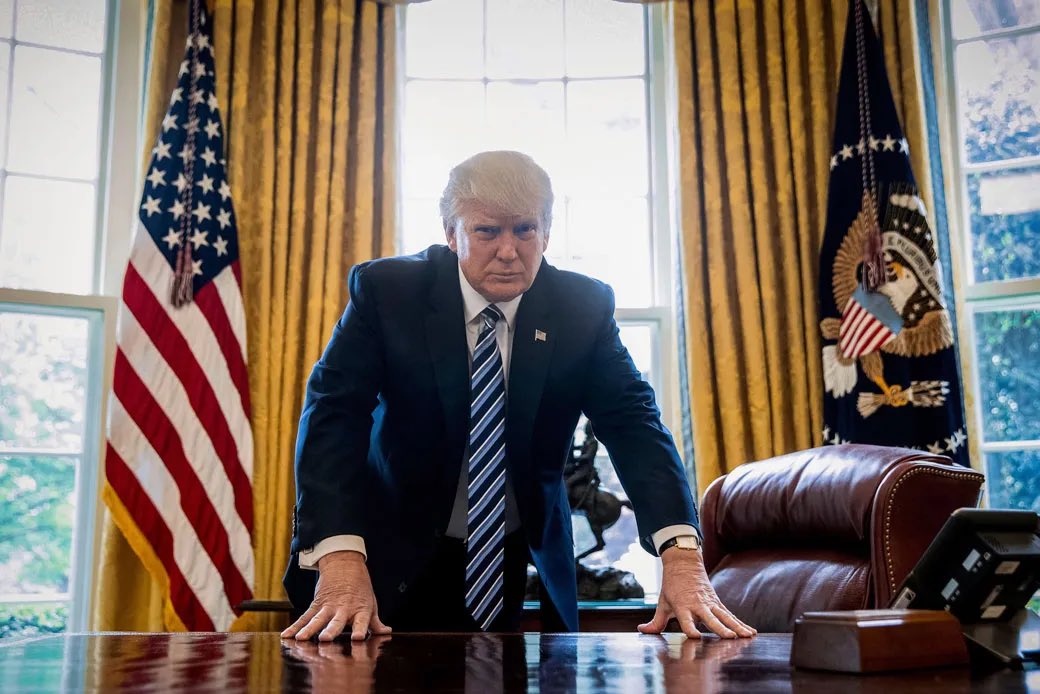
By Adeyemi Adekunle
A legal move has put Trump’s administration in a corner, a federal judge has ruled that the government cannot suspend foreign aid that was already in place prior to President Donald Trump taking office.
This ruling comes in response to a lawsuit filed by nonprofit organizations dedicated to international aid projects, which argued that the administration’s recent executive order halting U.S. foreign assistance could have devastating effects on global health and humanitarian efforts.
U.S. District Judge Amir Ali delivered his decision on Thursday, emphasizing that while the administration’s sweeping pause on foreign aid raised important constitutional questions, it was crucial to allow the continuation of established aid programs. The ruling specifically blocks Secretary of State Marco Rubio’s directive that aimed to halt nearly all U.S. foreign assistance, a move critics label as politically motivated and detrimental to ongoing humanitarian efforts.
“The administration has not yet meaningfully contested detailed and credible evidence of harm to countless American businesses,” Judge Ali stated. He highlighted potential consequences ranging from program shutdowns and employee layoffs to complete organizational furloughs. This decision is not only a judicial counter to the executive order but also a reflection of the urgent need for stability in international aid during uncertain times.
Plaintiff Global Health Council welcomed the ruling as a pivotal moment for U.S. foreign assistance programs. The organization’s president, Elisha Dunn-Georgiou, characterized the outcome as “a vital first step toward restoring U.S. foreign assistance programs.”
Dunn-Georgiou underscored the positive implications for global health, asserting that the reinstatement of aid “showcases the best of American values: compassion, leadership, and a commitment to global health, stability, and shared prosperity.”
The controversy surrounding the suspension of foreign aid stems from the belief among some members of the Trump administration, including Secretary Rubio and Department of Government Efficiency head Elon Musk, that such assistance is wasteful.
Musk has been particularly vocal, labeling the U.S. Agency for International Development (USAID) a “criminal organization” and claiming that it fails to deliver effective support to those in need.
Following the issuance of Trump’s executive order, the U.S. Agency for International Development rapidly implemented drastic measures that resulted in thousands of employees and contractors being fired, furloughed, or placed on administrative leave.
Critics have expressed deep concern over the impact of these cuts, arguing that assistance programs in health, education, and disaster relief are essential to both international stability and U.S. interests abroad.
As the legal battle unfolds, the White House has maintained silence, refusing to comment on Judge Ali’s ruling or the ongoing implications for its foreign aid strategy. This pause in communication raises questions about whether the administration will adjust its approach in light of the court’s decision or continue to push for its controversial agenda without regard for judicial oversight.
In addition to the legal ramifications, the ruling serves as a wake-up call for the Trump administration, highlighting the potential backlash from civic organizations dedicated to humanitarian efforts. As many of these groups begin to mobilize their resources to resume aid operations, there is a renewed focus on the importance of foreign assistance in promoting safety and prosperity across various global regions.
The court has instructed both parties involved in the lawsuit to provide a joint status report by 5 p.m. Friday, indicating that further legal proceedings are likely on the horizon. Observers note that this setting creates space for negotiations, and there is hope among aid organizations that the administration might reconsider its approach to foreign assistance altogether.
Critics of the administration argue that the suspension of foreign aid not only jeopardizes vital services for millions but also undermines the U.S.’s global leadership role during a critical juncture in international relations. By reinforcing alliances and providing support during crises, foreign aid has historically been a cornerstone of U.S. diplomacy, facilitating disaster relief, healthcare initiatives, and educational programs worldwide.
The implications of the court ruling reach beyond immediate aid programs; they may also shape the future of U.S. foreign policy. As lawmakers and advocacy groups rally behind the reinstatement of foreign assistance, the dialogue surrounding the purpose and effectiveness of such programs in advancing national interests is likely to intensify.
Judge Ali’s ruling reflects a broader struggle between judicial authority and executive power, illustrating the delicate balance that underpins American democracy. As the legal battles continue, officials from the Trump administration and advocacy groups alike will have to navigate a complex landscape, one that reaffirms the United States’ commitment to aid and its role in promoting global well-being. The future of foreign assistance remains uncertain, but for now, the judge’s ruling has given a lifeline to countless organizations working tirelessly in the name of compassion and support around the world.




